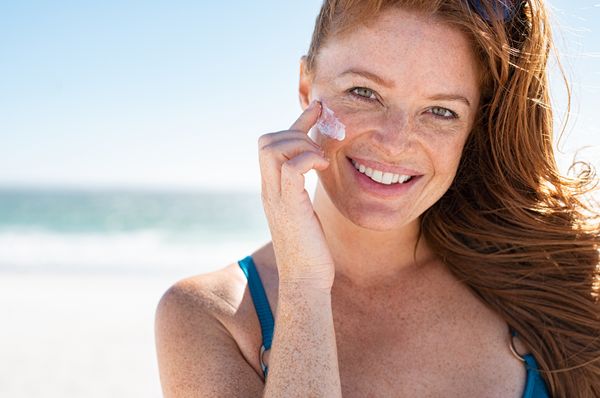Ever noticed how whatever is going on in our life seems to show on our face? If we're stressed, we can expect acne and dark circles under our eyes. If we're dehydrated, our skin looks dry and flaky. If we're sick, our face appears pale. Eat or drink too much and we wake up with puffy skin. But get a stretch of feeling great, exercising, eating right, and we positively glow with health.
Well, there's a reason for that. Our skin is our body's largest organ-an average of 21 square feet, to be exact. Whatever goes on in the inside shows up on the outside.
Take smoking, for instance. Studies find that smoking prematurely ages skin by disrupting your body's natural process of breaking down old skin and replacing it with fresh skin. Smoking also triples your risk of squamous cell skin cancer (not to mention numerous other cancers).
Stress can also negatively affect your face (and the rest of the body). But the opposite is also true. What you eat and how you live your life can lead to smoother, healthier skin. Overall, your best bet for your skin is also what's best for overall health: a low-fat, high-fiber diet filled with fruits, vegetables and whole grains, plenty of water, regular exercise and enough sleep every night (not just on weekends). More specifically, here's what the science shows:
- Fats. Several studies find that the amount of poly- and monounsaturated fats, particularly omega-3 fatty acids, you get in your diet may affect the amount of sun and aging damage your skin experiences. The best source of omega-3s? Cold-water fish, such as salmon, mackerel and tuna. For healthy mono fats, we recommend olive oil and nuts.
- Tea. To understand the effect of green tea on skin health, you first need to understand what causes aging. We now know that skin aging is mainly the result of free radical damage to cell walls and other cell structures. Sun exposure and cigarette smoking contribute to the production of these free radicals. Antioxidants, on the other hand, are molecules that neutralize these free radicals. One good source is any type of tea. One Arizona study, for instance, found that the more black tea people drank (particularly tea with lemon) the less likely they were to develop squamous cell skin cancer.
- Fruits, vegetables and fish. You know these foods are good for you for any number of reasons. But did you know they may prevent wrinkling? When researchers from Monash University in Australia studied the diets of 453 people aged 70 and older from Australia, Greece and Sweden to see if there was any correlation between what they ate and the amount of wrinkles on their skin, they found those who ate the most fruits, vegetables and fish had the least amount of wrinkles. Conversely, the researchers found, foods high in saturated fat, including meat, butter and full-fat dairy, as well as soft drinks, cakes and pastries, and potatoes, increased the likelihood of skin wrinkling.
- Exercise. Regular exercise maintains healthy circulation and blood flow throughout your body, including your skin. If you're exercising outdoors, though, remember to wear a sunscreen on your face that protects against UVA and UVB rays, or a moisturizer with sunscreen protection.
- Vitamins. Although it's always best to get what you need from food, several studies attest to the skin-protecting effects of supplements containing the antioxidant vitamins E and C.
- Other nutrients. Other studies suggest that consumption of borage oil (high in omega-3 fatty acids), garlic and ginkgo biloba may also protect skin from the detrimental effects of sunlight and free radicals.
10 Foods to Eat for Your Face
- Salmon
- Green Tea
- Olive oil and olives
- Sardines
- Brazil nuts
- Blueberries
- Flaxseeds
- Non-fat dairy products
- Canola oil
- Avocados
- 10 Foods for Healthy, Beautiful Skin ›
- Beauty Lessons From French Women ›
- Must-Know Winter Makeup Tips ›
- Face Washing Mistakes You Never Knew You Were Making ›
- Holiday Skincare & Beauty Tips ›







